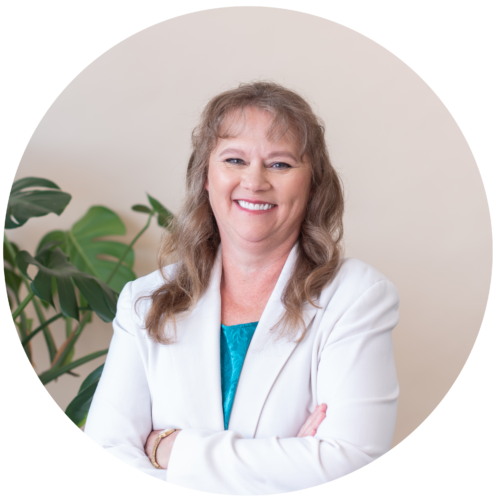by Whitney Hopler, Communications Manager
Laura Buckwald, the first recipient of Mason’s MAIS – Individualized Concentration: Leadership, Resilience, and Well-Being degree, studied under the individualized mentoring of our center’s Executive Director, Dr. Nance Lucas. Now Buckwald, who was a federal government employee for 31 years, has founded the Human Vitality and Resilience Center to train others to become teachers and practitioners in the field of resilience and well-being.
Buckwald said she had “amazing experiences” participating in one of our center’s past Leading to Well-Being programs and attending our center’s Leading to Well-Being conferences, so when our center “first offered the master’s degree in Leadership, Resilience, and Well-Being, I jumped at the chance to participate. My career was very demanding in terms of time and being placed in stressful situations and circumstances, both in the United States and abroad. Learning about how I could become more resilient and improve my own well-being and that of my colleagues was an exciting opportunity. What was important to me was that this program was evidence-based, examining the latest scientific research in resilience and well-being, as well as how to apply this to leadership. I found that this program is the most unique, cutting-edge and valuable program on these topics in the world.”
She conducted extensive research in the program that she applied to her professional work. Her research topics included positive emotions, positive psychology, the neuroscience of resilience and well-being, the impact of emotions and well-being on physiology, well-being in leadership, building resilience, social support, altruism, finding meaning and purpose in adversity, spirituality and resilience, cognitive and emotional flexibility, positive neuroplasticity, mindfulness, meditation, hope and optimism, cultural influences on resilience and well-being, the heart-brain connection, the influence of music on well-being, and trauma healing and well-being.
Buckwald’s research “Hearing Diverse Voices in Well-Being Research: A Call for Qualitative Methodologies” has been published in the Journal of Mason Graduate Research.
“As a result of my studies,” she said, “I realized the incredible value of learning about how one can become more resilient and consciously increase one’s own well-being. I have founded the Human Vitality and Resilience Center to train people who want to learn about increasing their resilience and well-being, using what I learned in my master’s program. I am focusing on people who wish to become trainers themselves in order to widen the impact of the training and reach a greater number of people.”
The skills that people can learn from studying leadership, resilience, and well-being are vital in today’s world and workplace, said Buckwald. “So many people today are stressed and feeling overwhelmed with the multitude of demands on them. The skills learned in this program greatly help people to manage these stresses in a healthy way. In addition, the program shows how people cannot just survive challenging circumstances, but flourish and thrive as a result of them. One of the great things about this program is that it shows how people can take control of their own well-being and resilience by actively and deliberately engaging in practices which shift one’s mindset and develop inner resources. The program provides the science behind resilience and well-being, which allows us to prepare for adversity in advance, and gives us the tools to deal with the inevitable difficulties of life in a more productive way.”
Buckwald added, “On a personal level, when I was studying for this master’s degree I was working full-time at a very challenging job. This placed heavy demands on my time and my stamina, but I found that engaging with the material and using the skills and experiences from my classes while studying in the program helped me manage the stresses of work and school. Studying the material in this program helped me to stay positive and determined, and taught me that actively working on one’s well-being is important for success. Everything I now teach, I teach it because I know it works through personal experience.”

